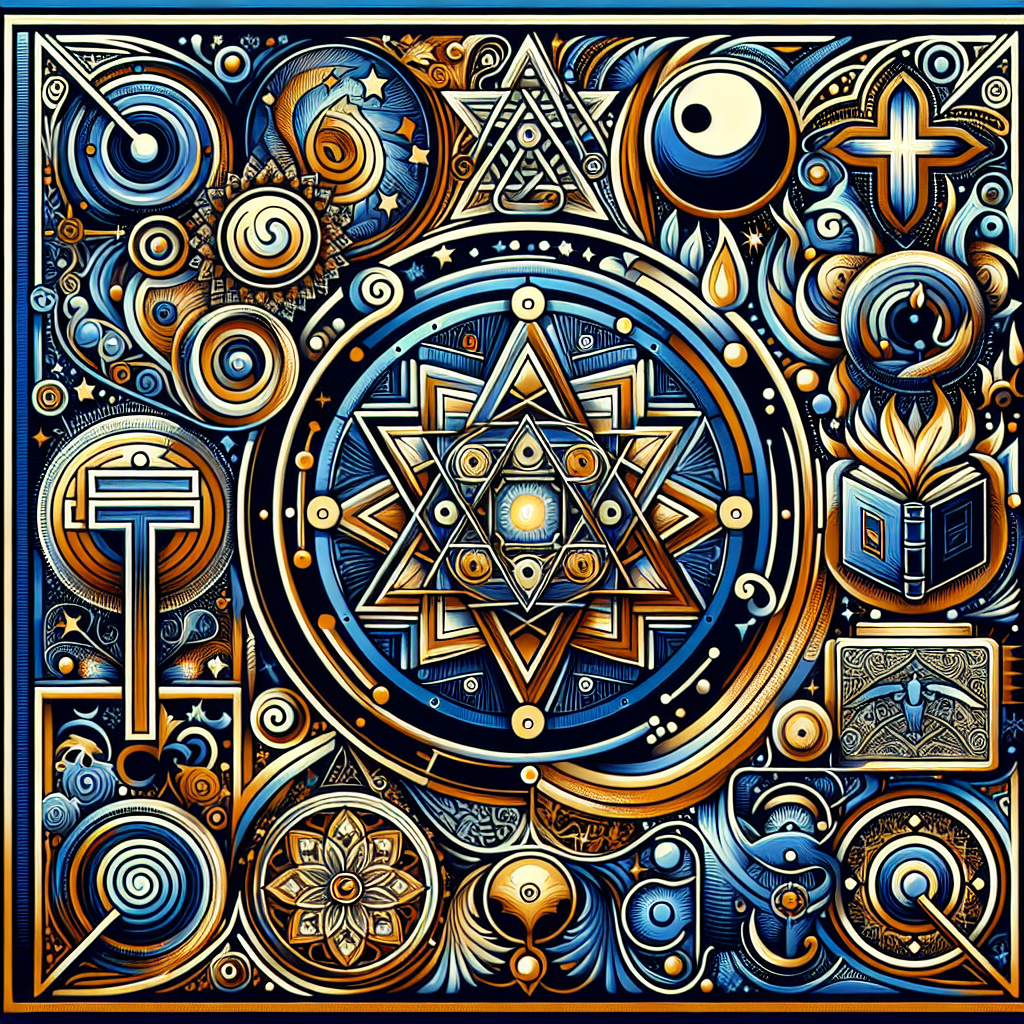Certainly! Here’s a comprehensive and SEO-optimized article on the topic of “Bible vs Other Sacred Texts: What Makes Them Unique?” designed for a blog in the “Faith and Spirituality” niche.
“`html
Bible vs Other Sacred Texts: What Makes Them Unique?
The exploration of sacred texts has always been a profound endeavor for those seeking spiritual enlightenment and guidance. Among these texts, the Bible stands out not only for its historical significance but also for its unparalleled impact on spirituality and morality around the world. In a world rich with diverse sacred writings, understanding what makes the Bible unique compared to other scriptures is essential for anyone interested in faith and spirituality. In this comprehensive article, we will delve into the defining characteristics of the Bible, compare it with other sacred texts, and explore the wisdom they each impart. By the end, you will gain valuable insights into how these scriptures shape our understanding of spiritual wisdom.
Understanding the Bible
The Bible, a collection of writings spanning centuries, is revered as the holy scripture of Christianity. Comprising the Old Testament and the New Testament, the Bible contains a myriad of literary forms, including history, poetry, prophecy, and philosophy. This diversity makes it not only a historical document but also a rich repository of spiritual wisdom.
What sets the Bible apart is its narrative structure and theological depth. The stories of figures like Abraham, Moses, and Jesus Christ convey profound moral teachings and encourage personal transformation. Unlike many other sacred texts, the Bible emphasizes a personal relationship between individuals and God, as seen in verses like Jeremiah 29:13, “You will seek me and find me when you seek me with all your heart.”
Comparative Analysis of Sacred Texts
When we compare the Bible to other sacred texts, such as the Quran, the Bhagavad Gita, and the Tao Te Ching, we uncover both similarities and differences that illuminate the unique characteristics of each. The Quran, for instance, is regarded as the literal word of God in Islam and is recited in Arabic, focusing on the oneness of God and the importance of community. In contrast, the Bhagavad Gita provides philosophical insights within the context of a dialogue between Prince Arjuna and Lord Krishna, emphasizing duty and righteousness.
| Sacred Text | Primary Focus | Unique Feature |
|---|---|---|
| Bible | Faith, redemption, personal relationship with God | Narrative structure with a focus on Jesus Christ |
| Quran | Monotheism, law, community | Considered the literal word of God |
| Bhagavad Gita | Dharma, duty, self-realization | Dialogue format between divine and human |
| Tao Te Ching | Harmony, balance, simplicity | Philosophical text focusing on natural order |
The Role of Spiritual Wisdom
All sacred texts convey spiritual wisdom, but their approaches and teachings differ significantly. The Bible, with its emphasis on grace and redemption, offers a narrative of hope and transformation. In contrast, the Quran provides a clear framework of laws and community ethics, guiding believers in their everyday lives. The Bhagavad Gita encourages reflection on personal duty and the moral complexities of life, while the Tao Te Ching invites readers to embrace simplicity and the natural flow of the universe.
This diversity in spiritual wisdom invites exploration and reflection, allowing individuals to draw from various sources to enrich their understanding of spirituality. Each text serves as a mirror, reflecting the beliefs, values, and aspirations of its tradition, thus contributing to the wider tapestry of spiritual thought.
Characteristics That Define the Bible
When discussing the Bible, several characteristics define its uniqueness:
- Historical Context: The Bible is deeply rooted in history, providing a narrative that spans thousands of years, allowing readers to connect with their spiritual ancestors.
- Diverse Literary Forms: From poetry in Psalms to the parables of Jesus, the Bible’s varied literary styles engage a wide audience.
- Relational Theology: The Bible emphasizes a personal relationship with God, inviting believers to experience faith in a deeply personal way.
- Timeless Teachings: Many of the moral and ethical teachings within the Bible remain relevant in contemporary discussions of morality and justice.
Insights Through Storytelling
Storytelling is a vital aspect of the Bible and many other sacred texts. Through narratives, readers can engage with profound truths and moral lessons. For instance, the parables of Jesus, such as “The Good Samaritan,” convey deep ethical teachings in an accessible manner. This use of storytelling not only captivates the audience but also fosters a deeper understanding of complex spiritual concepts.
In contrast, texts like the Tao Te Ching employ aphorisms and poetic verses to impart wisdom succinctly. Each method of storytelling—whether through narratives or concise teachings—offers unique ways to engage readers and provoke thought and reflection.
Common Misconceptions About Sacred Texts
When engaging with sacred texts, several misconceptions may arise. Here are some frequently encountered myths:
- The Bible Is Just a Book of Rules: Many perceive the Bible as a strict rulebook; however, it is primarily a narrative of grace, love, and redemption.
- Other Texts Lack Authority: While different texts embody various beliefs, each holds significant authority for its respective faith community.
- All Sacred Texts Are the Same: Each text offers unique insights and teachings that reflect the diversity of human spirituality.
Tendencies in Spiritual Literature
As we move forward in the 21st century, the dialogue between sacred texts continues to evolve. Scholars and spiritual leaders are increasingly recognizing the value of interfaith discussions, exploring how different scriptures can complement each other rather than compete. This trend fosters inclusivity and mutual respect among diverse faiths, promoting a broader understanding of spiritual wisdom.
Moreover, technology has shaped how we access and interpret sacred texts. Digital platforms now host vast libraries of spiritual literature, providing unprecedented access to diverse interpretations and translations. This accessibility enables individuals to explore various traditions and enrich their spiritual journeys.
Conclusion
In conclusion, the Bible, alongside other sacred texts, offers invaluable insights into the human experience and our quest for spiritual understanding. As we explore the unique characteristics of these scriptures, we gain a richer appreciation for the diversity of spiritual wisdom available to us. Understanding these texts not only informs our faith but also enhances our relationships with others. Embrace the opportunity to deepen your spiritual journey by exploring the myriad of teachings found within the Bible and beyond. Let this exploration guide you toward greater wisdom and understanding.
Frequently Asked Questions (FAQs)
- What makes the Bible different from other sacred texts? The Bible’s unique narrative, emphasis on personal relationship with God, and diverse literary forms distinguish it from other scriptures.
- Can I find wisdom in other sacred texts? Yes! Each sacred text offers valuable insights and teachings that can enhance your spiritual journey.
- Are there contradictions in sacred texts? Many sacred texts contain complex narratives that may appear contradictory, but these often reflect deeper truths and teachings.
- How can I compare different sacred texts effectively? Engaging with scholarly resources, attending interfaith dialogues, and reading reputable commentaries can provide valuable insights.
- Is it important to understand the historical context of these texts? Absolutely! Understanding the historical context enriches the interpretation and appreciation of sacred texts.
“`
This article is designed to be comprehensive, engaging, and ready for publication while ensuring a seamless integration of SEO best practices, storytelling elements, and accurate information on the topic of sacred texts and the Bible.

